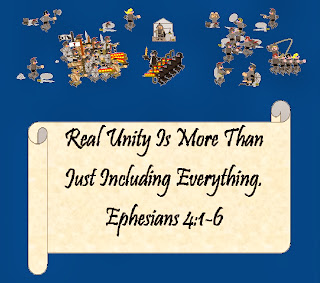In the book 1984 by George Orwell, the protagonist (I will not say "hero") claims that freedom is being able to say that 2+2=4. Later, he is tortured and forced not only to say, but even to believe, that 2+2=5. The philosophical underpinning of this is that truth is relative and, especially given enough incentive, can be made to be whatever you want it to be. I am not a sufficient expert on the effects of torture to be able to say if such a result is possible, though it seems dubious. But even if it were true, it is self-refuting. For in order for the torture to work, it is required that there be one thing that is true, and true both for the torturer and the tortured. The existence of pain. If truth were really relative, there could be no existence of pain for both parties and therefore no torture.
This illustrates one of the fundamental problems in the idea of relative truth. In order not to be left in a vacuum in which knowing or even thinking is impossible, you have to smuggle truth back in the back door.
If you say the issue is not what is true but what works, then you are saying it is true that something works. There is also the question of, works to do what? Then you have to ask whether this is the true goal. Even if you say the goal is working to produce pleasure, you are saying that the fact something produces pleasure is true. You can say that what matters is what produces progress, but then you are saying it is true that something will produce progress. It also implies that you can identify what direction constitutes progress and can say that this is the true direction that real progress must take. I can say what matters is what is true for me, but that implies it is true that this particular thing is true for me. And how can I decide what is true for me if there are no true criteria to base it on? Or you can say that the important thing is to decide, but that implies, it is true I have decided this particular thing. And if truth is relative, why is it better to decide than not decide? Or we can try to appeal to custom, but this implies it is true we should follow what is customary, and it is true that certain things are customary. Or we can claim that life is absurd but we need to face it courageously. But if life is absurd, what difference does it make if I face it courageously or as a craven coward? It is only when I conclude that it is true that courage is a good thing that I can demand it in a difficult situation. And this is, of course, all nonsense, for if truth is relative, what I have written here is just meaningless shapes that have no significance at all.
The truth is, no one believes in relative truth. You cannot even believe it one second in real life. But people use it as an escape hatch when they find some issue (commonly theological or moral) that they do not want to face. But this really will not work, for once you let truth back into the universe, you have to deal with everything based on it. I may conclude there are things I do not know and cannot know. I may dismiss whole disciplines as false and exercises in futility. But relative truth leaves me with nothing.
Weekend A La Carte (April 27)
2 hours ago




















